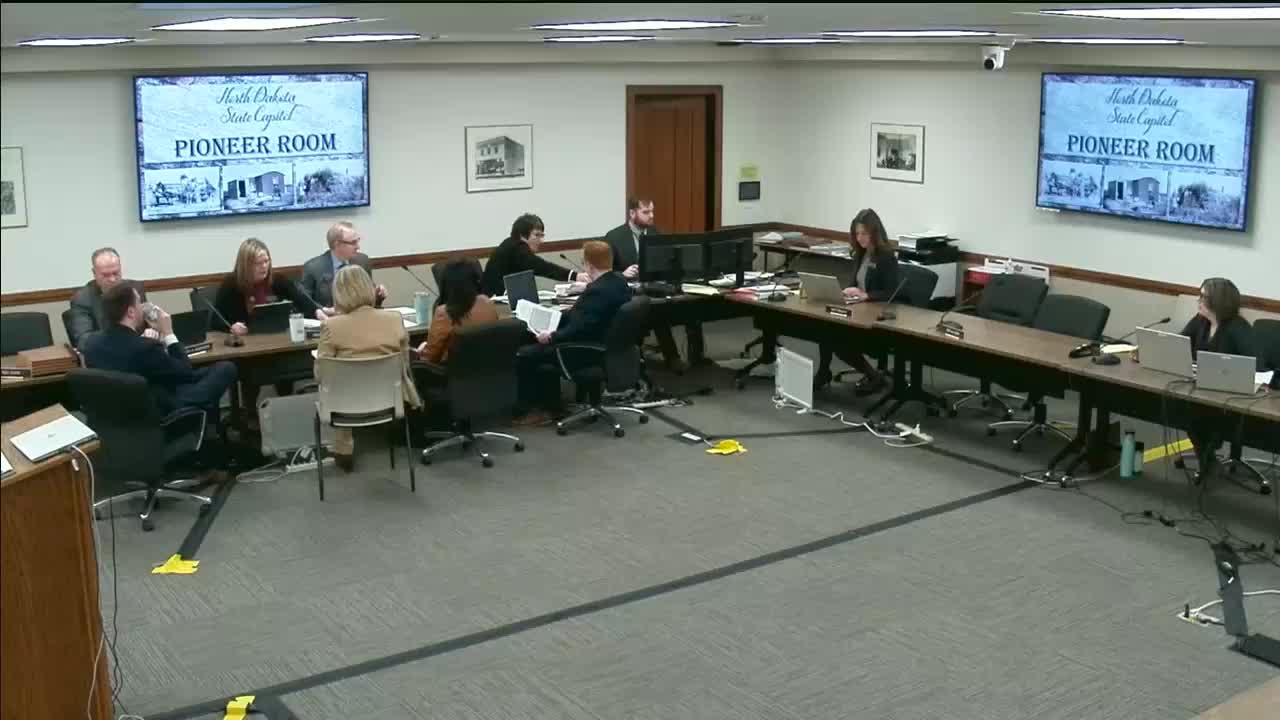Subcommittee reviews 2156 amendments: $200 threshold raised to $250, mailing addresses removed from public reports
Get AI-powered insights, summaries, and transcripts
Subscribe
Summary
Representative Vicki Steiner, chair of the Government and Veterans Affairs subcommittee, called the subcommittee on House Bill 2156 to order and led a staff-led review of recent amendments to the bill.
Representative Vicki Steiner, chair of the Government and Veterans Affairs subcommittee, called the subcommittee on House Bill 2156 to order and led a staff-led review of recent amendments to the bill.
The subcommittee focused on several substantive changes: raising the reportability threshold from $200 to $250 across the bill, removing donors' mailing addresses from public reports while retaining city and state, adding two expenditure categories ("political donations" and "volunteer appreciation"), clarifying petition/initiative committee language, and changing reporting timelines to eliminate overlapping reporting periods. "What I did is I just took it back to existing law to change a couple things that you'd suggested," Steiner said as she walked members through her amendment.
Dustin Richards, attorney with Legislative Council, explained how the statutory definition of "ultimate and true source" would be affected. "Ultimate and true source only pops up a couple times in this chapter," Richards said, noting the operative provision cited in the discussion as 16.108 0.108 and an additional cross-reference at 16.108.103.7. Richards said the definition applies when a statement requires identification of a contributor or subcontributor and described how the change in the dollar threshold would interact with that definition.
Erica White, State Election Director, and other secretary of state staff described system-functionality changes intended to reduce duplicate entries and user confusion. White said the amendments propose fixed reporting windows rather than a moving "40 days before the election" sliding scale, explaining that "using that sliding scale of 40 days before the election, we always have to go back to January 1" and that fixed periods would help both filers and the public by eliminating overlapping reporting periods.
Michael Howe, North Dakota Secretary of State, and Sandy McBurnie, deputy secretary of state, discussed removing the donor mailing address from publicly available fields so the system can better match contributors across filings and accounts. Howe explained the change was intended to avoid creating duplicate contributor records when donors use different addresses or checking accounts. Howe said retaining city and state preserves some transparency while reducing exact-address disclosure.
Members raised concerns about how the bill treats aggregated expenditures and whether itemized dates or vendor names would expose campaign strategy. Representative Benner and Representative Wolf both questioned the proposal to require name, city, state, total amount and date for each aggregated expenditure at the $250 threshold. Several members said the revised language and the return-to-existing-law approach in Steiner's amendment alleviate those concerns by preserving aggregation while adjusting the threshold and eliminating the mailing-address requirement.
No formal vote was taken. Steiner closed the subcommittee after members and staff identified a few remaining drafting and timeline issues and agreed to work with the secretary of state's office and Legislative Council to refine the language. "I think we'll close the subcommittee, and then we will work with your office a little more and see if we can get a couple of things cleaned up," Steiner said.
Next steps: staff and the secretary of state's office will continue drafting to resolve timing and aggregation language; members indicated they may bring refined amendments back to the subcommittee for further consideration. The House-passed change to raise the threshold to $250 (Representative Ruby referenced) was noted during discussion as precedent for the numeric adjustment now proposed in 2156.
